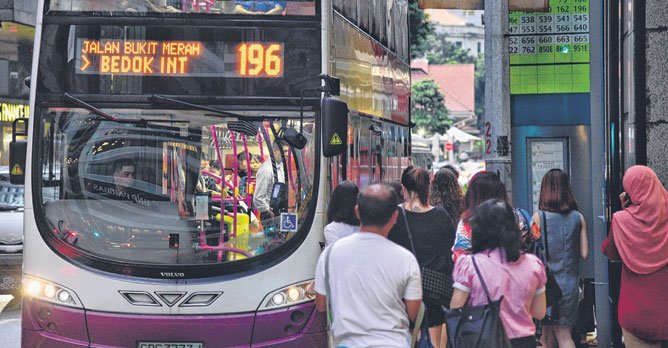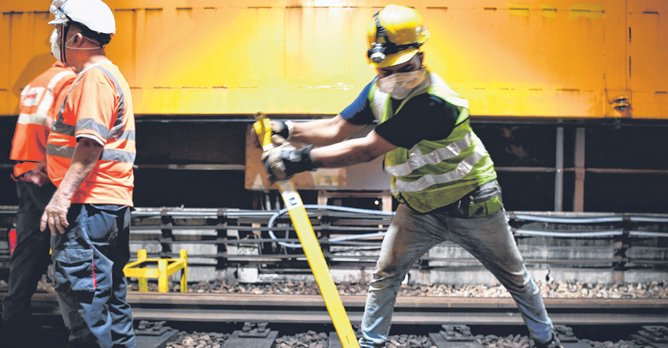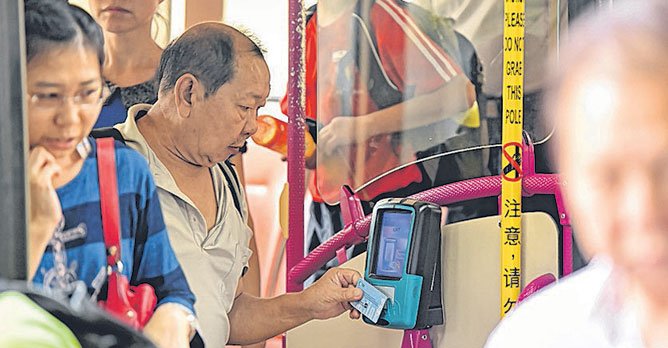LTA incurs $1 billion deficit in bus contracts
14 Oct 2019|4,769 views
Public bus operations have incurred 'losses' amounting to $1 billion, as fares fall far below the cost of government contracts awarded to transport firms such as SBS Transit and SMRT.

Bus fare revenue came up to $834 million. Along with other income of $78 million, the LTA collected $912 million in operating income.
But expenditure came up to $1.925 billion, resulting in a shortfall of some $1 billion - about 50% higher than five years ago. In the private sector, this shortfall would translate to losses.
In the bus contracting model, the Government owns all operating assets and collects fare revenue. Transport firms bid or negotiate to run route parcels for a fixed sum over a fixed period.
Bus contracts have been positive to operators. SBS Transit, the biggest bus firm here, posted a 70% surge in net profit to a record $80.1 million for the year ended 31 December 2018.
But transport firms have to meet higher service standards, too. Since bus contracting started in 2016, all buses have had to operate at intervals of six to eight minutes during a two-hour peak period. Previously, 90% had to operate at intervals of up to 10 minutes over a one-hour peak period.
In response to queries from The Straits Times last week, the Ministry of Transport said that despite the widening deficit, Singapore ranked second lowest in terms of cost in a 2018 comparative study done by the Nanyang Technological University.
In the study, Singapore buses cost $0.04 per place-km. This was higher than Hong Kong's $0.02, but lower than western cities like London, Toronto and New York. The study did not include other Asian cities such as Taipei, Seoul or Tokyo.
Asked to comment on the sizeable bus deficit, Singapore University of Social Sciences (SUSS) Transport Economist Walter Theseira said, "Bus contracting was not about saving costs. It was about operating the level and frequency of services that the Government believed the public wanted. Now, the real question is whether the price LTA is paying for bus services today is the lowest it can go, for the level of service quality desired."

"I would also favour some type of external or independent review so that the nature of the contracts could be benchmarked," he added.
SUSS Urban Transport expert Park Byung Joon said, "It is LTA who set the service standards.... Then, it is Public Transport Council who decides how to raise money, through fares. To me... the two decisions should be made by one body." He pointed out that Seoul pays the equivalent of around $400 million in bus subsidies, 'but it is rising'.
Meanwhile, subsidies for the rail sector here are just as sizeable. As at 31 March 2018, the Government had injected about $2.5 billion into the Rail Sinking Fund, of which about $1.3 billion has already been spent on upgrades.
In March this year, the Government announced that it expects to spend $4.5 billion over the next five years on renewal of rail operating assets. And in the last two years, the LTA said it collected only about $1.9 million in rail licensing fees from the operators, largely because the main operator, SMRT, has been incurring losses.
Public bus operations have incurred 'losses' amounting to $1 billion, as fares fall far below the cost of government contracts awarded to transport firms such as SBS Transit and SMRT.

Bus fare revenue came up to $834 million. Along with other income of $78 million, the LTA collected $912 million in operating income.
But expenditure came up to $1.925 billion, resulting in a shortfall of some $1 billion - about 50% higher than five years ago. In the private sector, this shortfall would translate to losses.
In the bus contracting model, the Government owns all operating assets and collects fare revenue. Transport firms bid or negotiate to run route parcels for a fixed sum over a fixed period.
Bus contracts have been positive to operators. SBS Transit, the biggest bus firm here, posted a 70% surge in net profit to a record $80.1 million for the year ended 31 December 2018.
But transport firms have to meet higher service standards, too. Since bus contracting started in 2016, all buses have had to operate at intervals of six to eight minutes during a two-hour peak period. Previously, 90% had to operate at intervals of up to 10 minutes over a one-hour peak period.
In response to queries from The Straits Times last week, the Ministry of Transport said that despite the widening deficit, Singapore ranked second lowest in terms of cost in a 2018 comparative study done by the Nanyang Technological University.
In the study, Singapore buses cost $0.04 per place-km. This was higher than Hong Kong's $0.02, but lower than western cities like London, Toronto and New York. The study did not include other Asian cities such as Taipei, Seoul or Tokyo.
Asked to comment on the sizeable bus deficit, Singapore University of Social Sciences (SUSS) Transport Economist Walter Theseira said, "Bus contracting was not about saving costs. It was about operating the level and frequency of services that the Government believed the public wanted. Now, the real question is whether the price LTA is paying for bus services today is the lowest it can go, for the level of service quality desired."

"I would also favour some type of external or independent review so that the nature of the contracts could be benchmarked," he added.
SUSS Urban Transport expert Park Byung Joon said, "It is LTA who set the service standards.... Then, it is Public Transport Council who decides how to raise money, through fares. To me... the two decisions should be made by one body." He pointed out that Seoul pays the equivalent of around $400 million in bus subsidies, 'but it is rising'.
Meanwhile, subsidies for the rail sector here are just as sizeable. As at 31 March 2018, the Government had injected about $2.5 billion into the Rail Sinking Fund, of which about $1.3 billion has already been spent on upgrades.
In March this year, the Government announced that it expects to spend $4.5 billion over the next five years on renewal of rail operating assets. And in the last two years, the LTA said it collected only about $1.9 million in rail licensing fees from the operators, largely because the main operator, SMRT, has been incurring losses.
Latest COE Prices
May 2025 | 1st BIDDING
NEXT TENDER: 21 May 2025
CAT A$103,009
CAT B$119,890
CAT C$62,590
CAT E$118,889
View Full Results Thank You For Your Subscription.




















